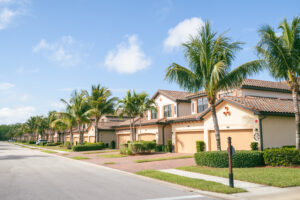 The American Seniors Housing Association (ASHA) [1] has released a report detailing the senior living priorities of the Baby Boomer generation, who will largely drive the industry's growth for the next 25 years.
The American Seniors Housing Association (ASHA) [1] has released a report detailing the senior living priorities of the Baby Boomer generation, who will largely drive the industry's growth for the next 25 years.
The report, Boomers and the Future of Senior Living, is based on surveys of more than 7,000 people, of which roughly 80% were Baby Boomers, conducted between December 2021 and March 2022.
The report includes information on participants' demographics, family and household characteristics, current living accommodations, and location preferences. Among the findings:
- Nearly 60% of respondents were considering a move, including to a retirement community, within the next four years.
- Respondents ranked full kitchen, laundry room with washer/dryer, living room, windows with natural light, and additional storage as their top five in-unit amenities.
- Up to 83% of respondents rated exterior home maintenance, lawn and landscaping, 24-hour security, and maintenance of appliances in residence as essential or desirable.
- At least half of those likely to or unsure if they would move to a senior living community rated walking trails, on-site storage, indoor fitness centers, activity rooms, convenience stores, family-friendly lounges, and ATMs as essential or desirable.
"In the years to come, many of the nation's 76 million Baby Boomers will transition into senior housing," ASHA President and CEO David Schless [2] said. "It's imperative that industry leaders understand the Baby Boomers' expectations so they can meet their needs and position themselves for success."
ASHA is a source for research, conferences and advocacy, and sponsors industry-leading conferences and networking events, conducts research, educates consumers, and advocates for policies that protect and advance member interests in order to move senior living forward.
"These data points provide insight into how Baby Boomers will transform the senior housing industry," said Kristen Paris, VP of Market Research at ProMatura Group [3], and Lead Researcher of Boomers and the Future of Senior Living. "Senior housing leaders need to begin planning now to prepare for the millions of Baby Boomers who will soon call their properties home."
According to the National Reverse Mortgage Lenders Association (NRMLA) [4], homeowners 62 and older saw their housing wealth fall slightly in Q4 of 2022 to $12.39 trillion, according to NRMLA’s latest quarterly release of the NRMLA/RiskSpan Reverse Mortgage Market Index. The RMMI decreased slightly in Q4 2022 to 433.25, from a recalibrated level of 434.32 in Q3 of 2022, marking the first drop the Index has seen since 2011.
NRMLA notes that the drop was driven by a modest decline in senior home equity from a peak of $12.42 trillion in Q3 of 2022 to $12.39 trillion in Q4 of 2022. The decline in equity resulted from an increase of $30 billion in senior home debt while home values remained relatively unchanged due to the continued cooling of the housing market.
“Housing markets nationwide experienced unprecedented growth over the past decade,” said NRMLA President Steve Irwin [5]. “While many of these markets are starting to see declines in home values, the key takeaway here is that older homeowners are still sitting on $12.39 trillion in housing wealth that can be used strategically as part of a retirement plan to enhance retirement security.”